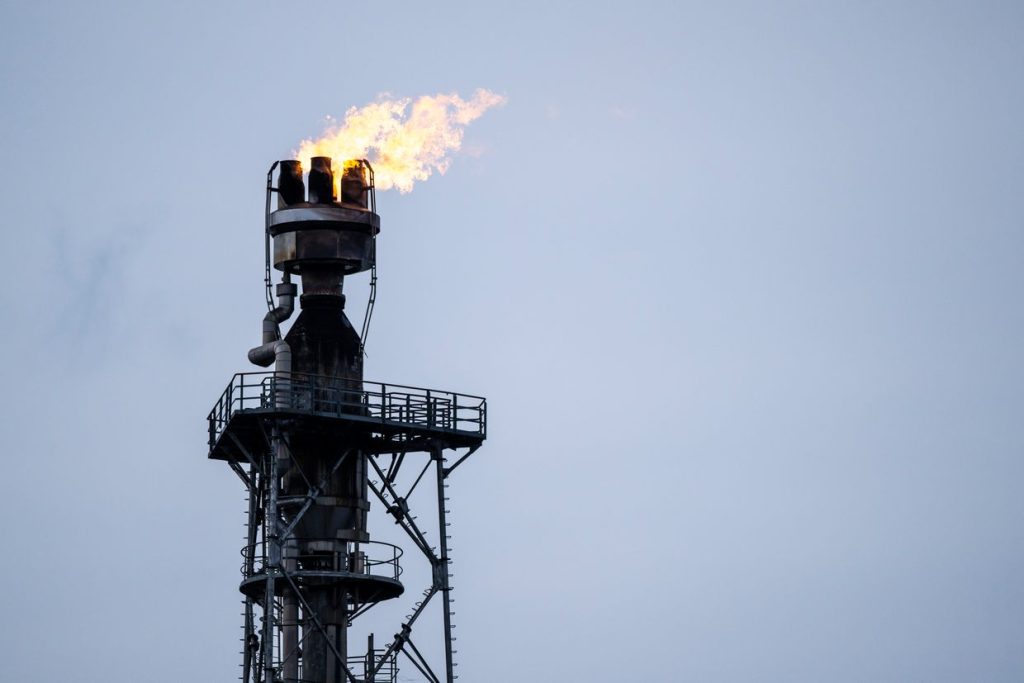A fire broke out at the Ilya oil refinery in Russia’s Krasnodar Krai after a drone attack on the facility on June 21, causing a 50-square-meter fire at the site. Two people were injured in the attack, which also targeted a military airfield in Yeysk. Ukrainian forces have been launching drone strikes aimed at damaging Russia’s oil industry, disrupting operations at two facilities in Krasnodar Krai in May. These attacks on Russian oil refineries are part of Ukraine’s efforts to counter Moscow’s military efforts.
In response to the drone attacks, Ukrainian forces are using drones to target Russian oil refineries in an attempt to disrupt Moscow’s war efforts. These attacks are a critical part of Ukraine’s strategy to stop a resurgent Moscow and buy time to rotate troops, resupply, and fortify in the face of Russian aggression. The Kyiv Independent, along with other sources, reported that dozens of Ukrainian drones have been carrying out strikes on Russian oil facilities. This strategy highlights the importance of controlling the skies in modern warfare and the impact that drone attacks can have on an adversary’s infrastructure.
The use of drones in warfare has become increasingly common, with both state and non-state actors utilizing this technology to conduct attacks. The precision and range of drones make them effective tools for targeting enemy assets, such as oil refineries, without risking human lives. In the case of the drone attacks on Russian oil facilities, Ukrainian forces are using this technology to disrupt Moscow’s oil industry, which is vital for sustaining its war efforts and military hardware. These attacks demonstrate the evolving nature of warfare and the role that drones play in modern conflicts.
The targeting of oil refineries in Krasnodar Krai is a strategic move by Ukrainian forces to weaken Russia’s military capabilities and disrupt its supply chain. By attacking key infrastructure such as oil refineries, Ukraine aims to hinder Moscow’s ability to sustain its military operations and compel it to divert resources to repair and protect its facilities. This tactic is part of a broader effort by Ukraine to push back against Russian aggression and defend its sovereignty. The use of drones in these attacks underscores the importance of technological capabilities in modern warfare and the changing dynamics of conflict.
The drone attacks on Russian oil refineries highlight the vulnerability of critical infrastructure to aerial attacks and the impact that such strikes can have on an adversary’s military capabilities. By targeting key facilities like oil refineries, Ukrainian forces are able to disrupt Russian operations and create challenges for Moscow in sustaining its war efforts. These attacks demonstrate the effectiveness of drones in conducting precision strikes and the strategic implications of using this technology in warfare. As conflicts continue to evolve, the use of drones is likely to play an increasingly important role in military strategies and tactics.
In conclusion, the drone attacks on Russian oil refineries in Krasnodar Krai by Ukrainian forces are a significant development in the ongoing conflict between the two countries. These attacks represent a strategic effort by Ukraine to weaken Moscow’s military capabilities and disrupt its supply chain, using drones to target key infrastructure and create challenges for the adversary. The use of drones in warfare highlights the evolving nature of conflicts and the importance of technological capabilities in modern warfare. As both sides continue to engage in this conflict, the role of drones is likely to grow in significance, shaping the outcome of the conflict and influencing future military strategies.


